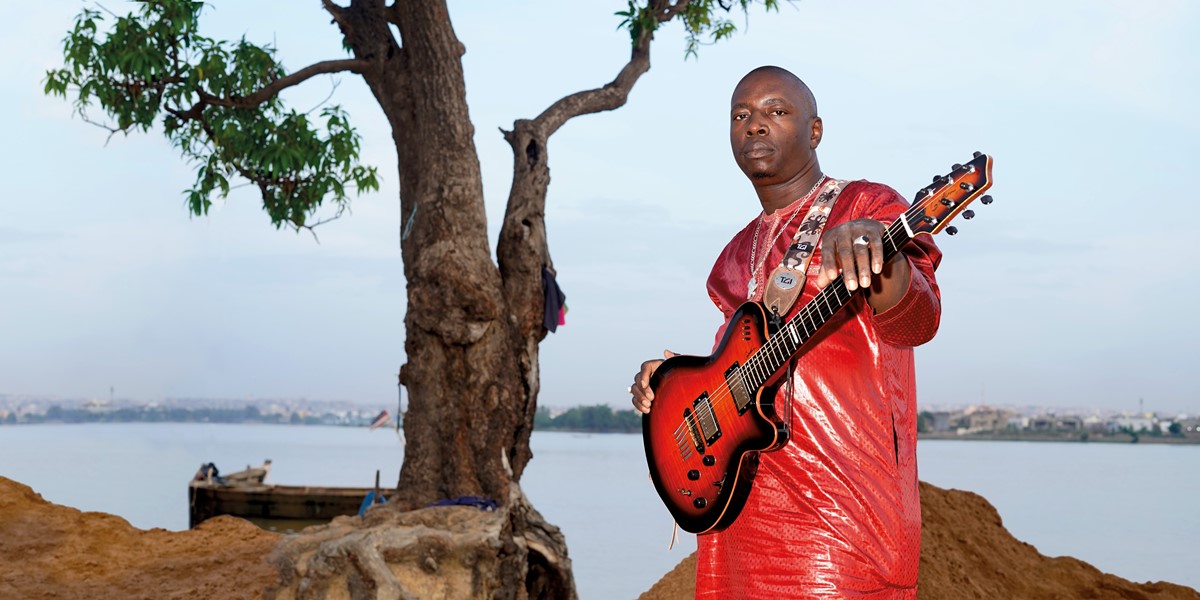Friday, July 22, 2022
Vieux Farka Touré interview: “It’s difficult to be the child of someone who has gone to the top of the mountain”
Emerging from the shadow cast by his famous father, guitarist Vieux Farka Touré has spent a career forging his own path. But now he’s finally returning to his roots. Photography by Kiss Diouara


Register now to continue reading

Thanks for visiting the Songlines website, your guide to an extraordinary world of music and culture. Sign up for a free account now to enjoy:
- Free access to 2 subscriber-only articles and album reviews every month
- Unlimited access to our news and awards pages
- Our regular email newsletters

